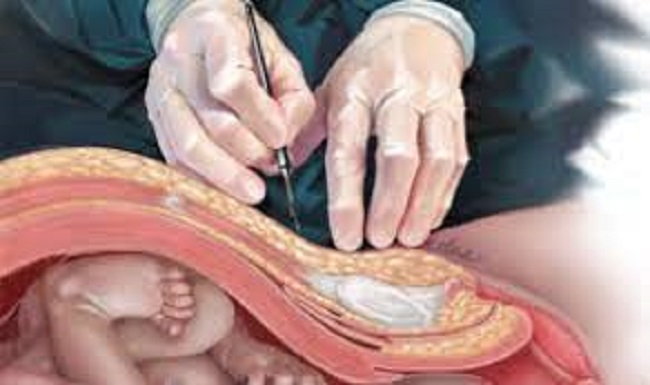

An obstetrician and gynaecologist, Dr Babafemi Daniya, has said contrary to the general belief, women who deliver their babies through caesarean section can also develop pelvic organ prolapse, a condition where one or more organs in the pelvic sag or bulge into the vagina.
Daniya, speaking at the urogynaecological lecture series of the National Postgraduate Medical College of Nigeria on ‘Conservative Management of Pelvic Organ Prolapse,’ said pregnancy is an independent risk factor for having pelvic organ prolapse, independent of the mode of delivery.
The consultant urogynaecologist at the University of Abuja Teaching Hospital said about one in three women will experience some form of pelvic organ prolapse in life, adding that it occurs due to many factors, including pregnancy, menopause, childbirth, obesity, prolonged labour, chronic coughing, smoking and chronic constipation.

According to him, complications of a vaginal organ prolapse include bladder control problems, bulging in the vagina, pain during sex and problems having bowel movements when stools get trapped.
The medical expert, noting that increasing cases of vaginal prolapse are now seen among young women of reproductive age, said strenuous exercises like skipping, also because of the shocking or gearing effect on the abdominal organs, can predispose women to having pelvic organ prolapse.
“Pregnancy is a risk factor, independent of mode of delivery. It increases a woman’s chances of having a pelvic organ prolapse; progesterone, the hormone of pregnancy, often softens the pelvic support and after each pregnancy, the woman is more prone to developing a pelvic organ prolapse.

“Even only one vaginal delivery increases a woman’s chance of having pelvic organ prolapse, and the more deliveries there are, the greater the risk that the woman will develop pelvic organ prolapse.

“Obesity plays a key role because it increases weight on the pelvic organs and pressure on the pelvic floor. Also, smoking has been shown to activate the release of elastin, which breaks down the vaginal wall and thereby reduces the strength of the vaginal wall,” he said.
The expert, however, declared that kegel exercise, vaginal pessary and other lifestyle modifications like increased intake of a high-fibre diet, weight loss and avoiding strenuous activities can help alleviate symptoms of pelvic organ prolapse and improve the quality of life in women with the condition.
According to him, surgery is also an option for treating pelvic organ prolapse, but it is not recommended for older women, pregnant women or women with medical conditions like heart problems, hypertension and malignancies.
Dr Tosin Joshua, a consultant in female pelvic medicine and reconstructive surgery and chairman on the occasion, said in a remark that the care of pelvic organ prolapse should be incorporated into primary health care services, given its high incidence in women.
He urged that assessments for pelvic organ prolapse should be part of a woman’s wellbeing visit, like blood sugar and blood pressure measurements, and that increased awareness should be created on the benefits of kegel exercises for pelvic floor disorders.
READ ALSO FROM NIGERIAN TRIBUNE








